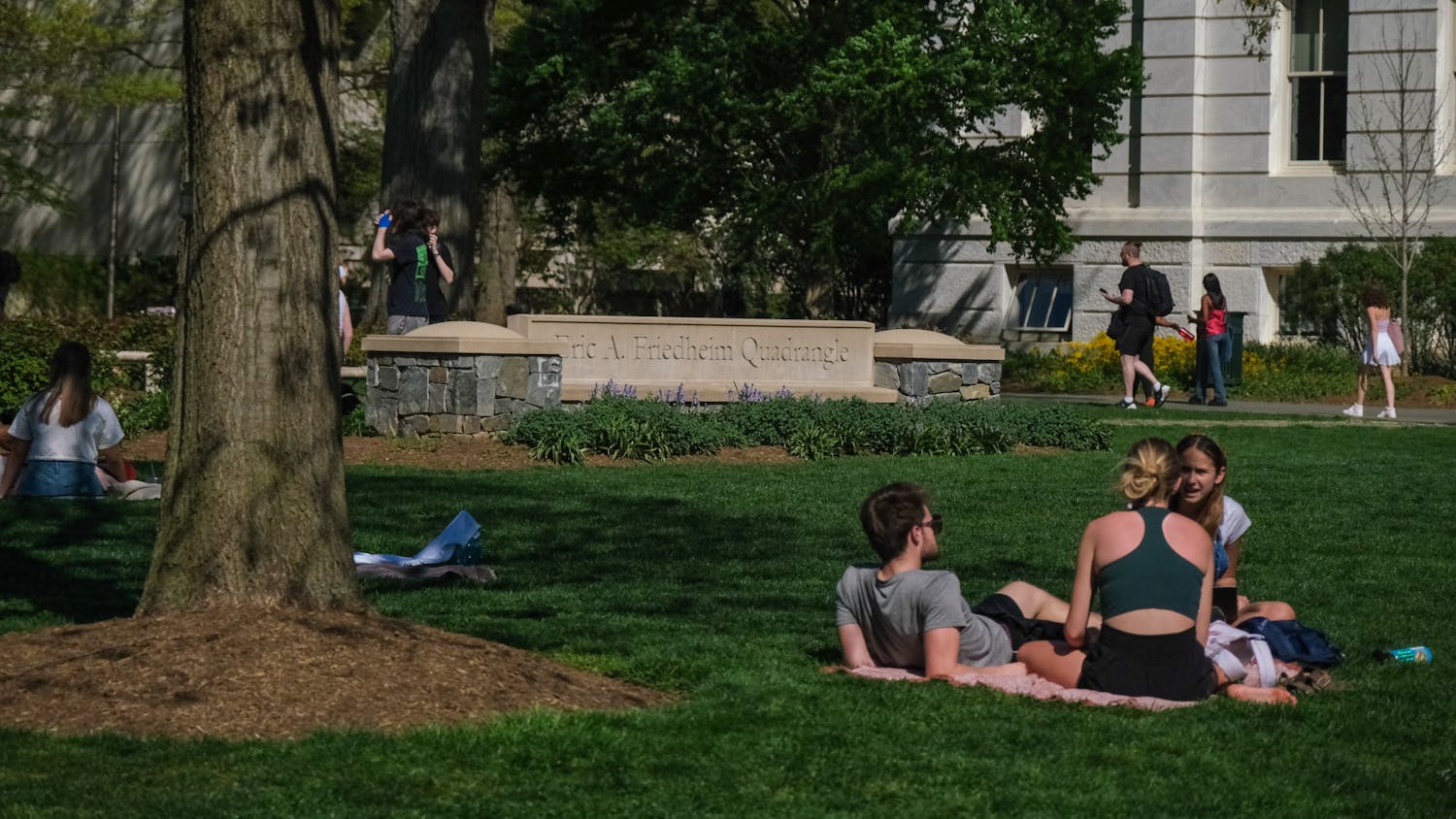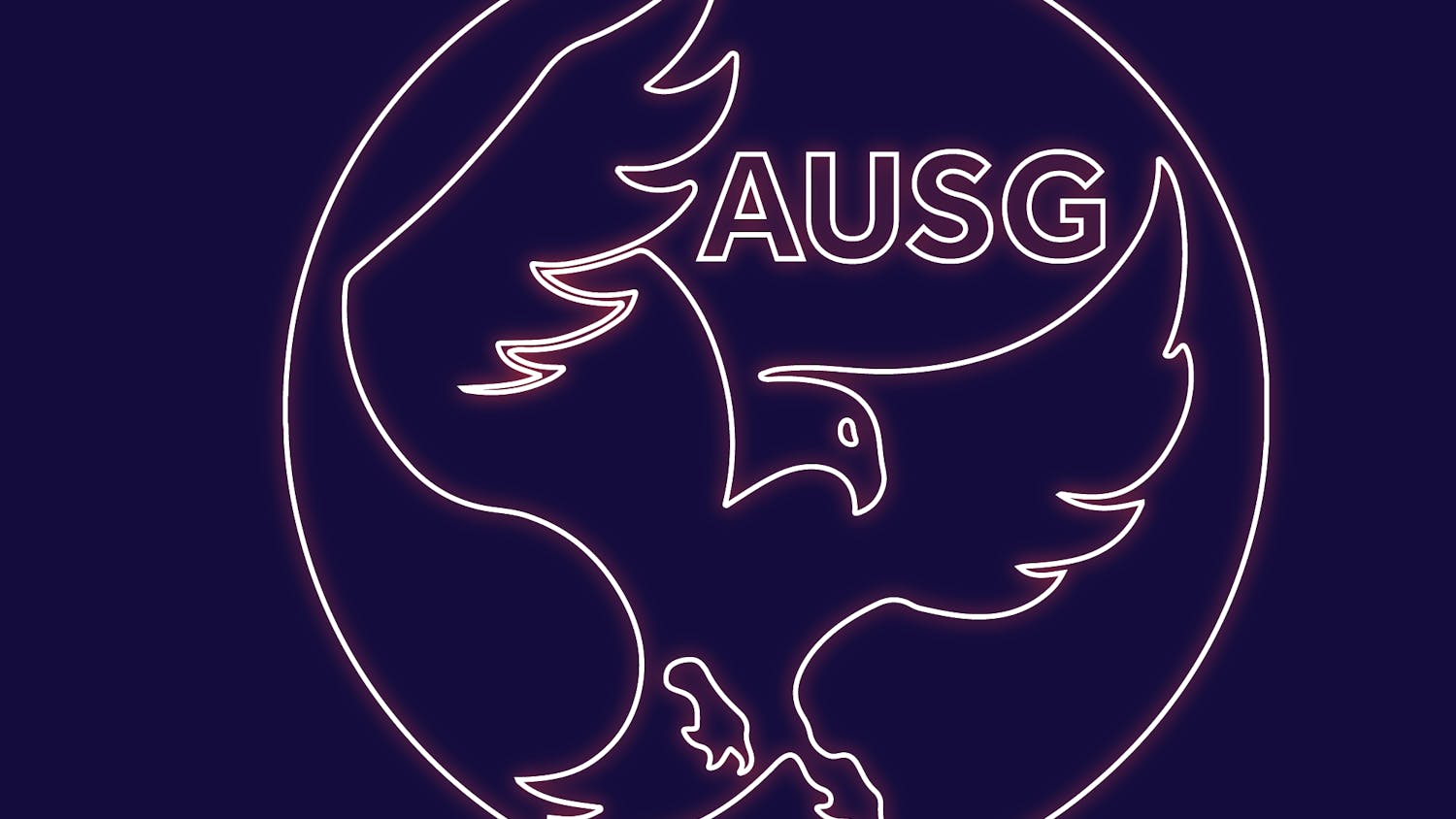Student Government elections are coming up on March 23 and 24, but Elliot Borg, a junior in the School of Public Affairs, could not care less.
“I don’t know any of the candidates running in the election, and, personally, I don’t really care,” Borg said. “I feel like most of the people who vote for the Student Government elections are the people who are actually in [the SG].”
Though Borg’s opinion does not necessarily reflect the opinions of all students at AU about SG elections, voter turnout for the spring SG elections has declined in at least four of the last five years, The Eagle previously reported.
About 974 students voted in the spring 2005 Student Government elections. Voting numbers surged the next year when over 1,800 students voted before declining: 1,661 students voted in the 2007 elections and 1,495 students voted in the 2009 spring elections. Voter turnout numbers for the 2008 election were not available.
Glynnis McIntyre, a sophomore in the School of International Service, said she thinks voter turnout is declining because SG executives are too distant from AU students.
“It seems really difficult for them to connect with students,” she said. “They don’t make their presence known on campus, and there isn’t a great deal of face-to-face interaction between students and candidates.”
Anthony Dunham, a sophomore in SPA and a candidate for SG president, said declining voter turnout is, in large part, the SG’s own fault. The SG has failed to provide consistent, effective outreach to the members of the campus community, Dunham said.
Students choose not to vote because they do not think the SG is effective in bringing significant changes to AU, Dunham said.
“[Students] feel that no matter who is elected, they are just going to do the same thing others have done — nothing — so it doesn’t matter who they are,” Dunham said. “I think that part of the idea of running in elections is not only to get yourself elected but also to stir up the student body and engage them in the political process.”
Seth Rosenstein, a sophomore in SPA and an SG presidential candidate, said he wants to turn the mixed opinions of AU students about SG elections into active interest.
“Some people’s lives revolve around the SG, and [they] will know everything about a candidate, while others simply have no interest in the elections,” he said. “Unfortunately most students don’t know enough about the SG to care about what it does.”
Nate Bronstein, a third SG presidential candidate and a sophomore in the SPA, also feels the SG has not done enough to reach out to students during the elections and in general.
Nirvana Habash, who is also seeking the presidential seat, could not comment for this story based on her disqualification on Wednesday by the Board of Elections.
All presidential candidates have tried to establish a presence on campus with methods such as putting up flyers, creating Facebook groups, making chalk advertisements on campus and setting up individual question-and-answer sessions.
Candidates have also expanded their modes of communication by establishing Twitter accounts. Bronstein said he might even send out viral campaign videos. Dunham and other students running for offices in the SG also created Web sites.
Mara Da Silva, a senior in the School of Communication, said despite these new updates, candidates should continue to place a high priority on basic candidate-student interaction.
“[The candidates] shouldn’t forget the face-to-face aspect of campaigning,” Da Silva said. “It’s good to send out Facebook group invites and e-mails to a wide group of people, but there’s a value to face-to-face interaction that can’t be replaced with a computer.”
You can reach this staff writer at jryan@theeagleonline.com.




